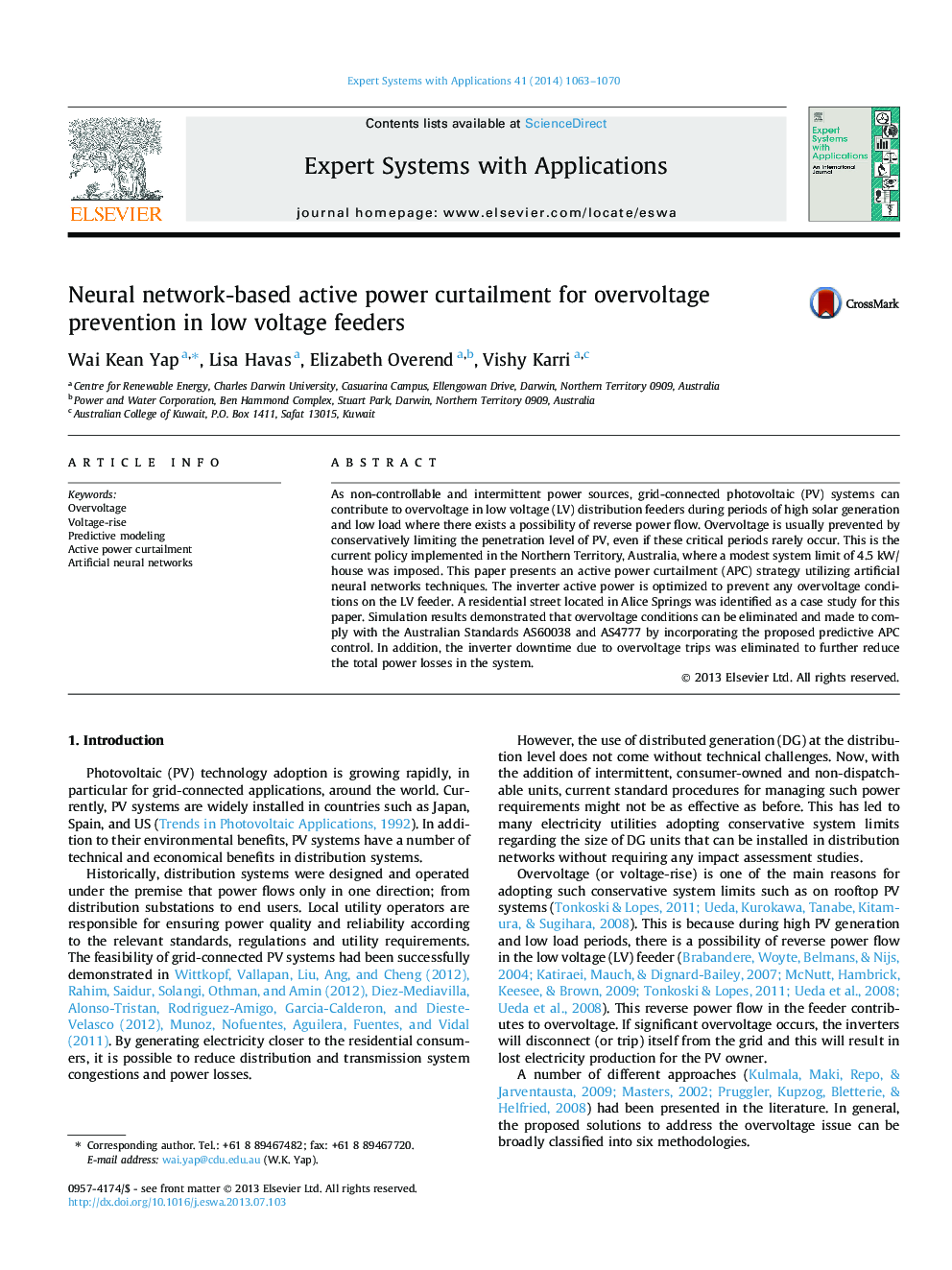| کد مقاله | کد نشریه | سال انتشار | مقاله انگلیسی | نسخه تمام متن |
|---|---|---|---|---|
| 386783 | 660891 | 2014 | 8 صفحه PDF | دانلود رایگان |
• Intelligent methods for overvoltage prevention in low voltage residential feeders.
• Active power curtailment utilizing neural networks were proposed.
• A residential street in Alice Springs was used as the experimental case study.
• Results showed that overvoltage can be prevented to comply with the AS standards.
As non-controllable and intermittent power sources, grid-connected photovoltaic (PV) systems can contribute to overvoltage in low voltage (LV) distribution feeders during periods of high solar generation and low load where there exists a possibility of reverse power flow. Overvoltage is usually prevented by conservatively limiting the penetration level of PV, even if these critical periods rarely occur. This is the current policy implemented in the Northern Territory, Australia, where a modest system limit of 4.5 kW/house was imposed. This paper presents an active power curtailment (APC) strategy utilizing artificial neural networks techniques. The inverter active power is optimized to prevent any overvoltage conditions on the LV feeder. A residential street located in Alice Springs was identified as a case study for this paper. Simulation results demonstrated that overvoltage conditions can be eliminated and made to comply with the Australian Standards AS60038 and AS4777 by incorporating the proposed predictive APC control. In addition, the inverter downtime due to overvoltage trips was eliminated to further reduce the total power losses in the system.
Journal: Expert Systems with Applications - Volume 41, Issue 4, Part 1, March 2014, Pages 1063–1070
